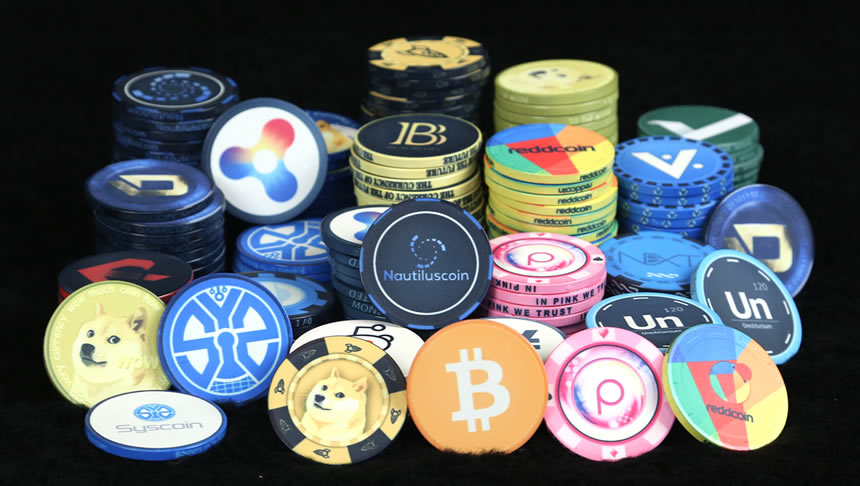Ever since its introduction in 2009, cryptocurrencies’ ability to function as an alternative, anonymous payment method has completely disrupted the financial services industry. Having pioneered blockchain technology that provides users with an incomparable level of protection and transparency, widely used cryptocurrencies like Bitcoin, Ether, Dash, Zcash, Dogecoin and Monero are gaining ground all over the world and are purported to be the future of Ecommerce, despite the SEC initially rejecting the Winklevoss Bitcoin ETF proposal last month.
Although the main detraction offered by critics is the high volatility these currencies offer, most cryptocurrencies have been reaching all time highs, leaving little doubt they are indeed the currency of the future.
With that in mind, let’s take a look at some of the ways the cryptocurrencies are being used currently and what they may be used for in the future.
Shopping on top merchant sites and retailers
In 2016 it was estimated that more than 150,000 merchants across the globe accepted payment through the world’s most popular cryptocurrency, Bitcoin. Major retailers like WalMart, Sears, Ebay, Overstock.com, Microsoft, Apple, Steam, Expedia, and even Subway.
Then there’s Purse.io, the California based startup that allows you to use Bitcoin to purchase anything from Amazon, the world’s largest online retailer, with up to 20-30 percent discounts from their listed price. This is possible as they connect people with Amazon gift cards that are looking to exchange them for much more coveted Bitcoin with people with Bitcoin looking to make purchases off Amazon.
While Amazon have not made any public plans about accepting Bitcoin directly, at the rate cryptocurrencies are expanding in the marketplace it would not be hard to conceive them doing so within the next few years.
Money Transfer and Remittances
Cryptocurrencies offer plenty of advantages over your regular Western Union or Bank to Bank Transfers. First of all, bank’s exchange rates and bank wire fees are usually not very favorable for consumers, particularly when transferring remittances of small amounts. Second, a Bitcoin transfer can be cleared within an average of 12 hours, a speed that simply cannot be matched by any banks.
While Western Union can certainly complete a transfer faster than that, their fees are exponentially bigger than any cryptocurrency out there, making the extra hours wait worth the while in any situation that does not possess immediate urgency.
Services like CoinPip also offer the possibility for companies to pay vendors and remote contractors using cryptocurrencies, and yet having them receive the funds in their desired currency and at a fraction of the cost that banks would usually charge. This sort of service could revolutionize the way that payrolls are handled in the future.
iGaming
The iGaming industry, is arguably the industry that benefits the most out of the use of cryptocurrencies. While playing at online casinos is legal in a great amount of territories, there is still a stigma to it that can affect players and their abilities to get loans in certain countries.
Therefore, with Players looking for a deposit/withdrawal method that can guarantee the privacy and security of their transactions and casinos wanting to protect themselves from dishonest clients charging back their payments after losing their funds, it would seem that cryptocurrencies were practically custom made for this industry.
In the past few years many Bitcoin exclusive casinos have been popping up throughout the industry, and other major casino operators like VikingSlots are considering to adopt it as a payment method, as well as adopting blockchain technology to make their casino games provably fair.
With the United Kingdom Gambling Commission recognizing Bitcoin as approved currency for online gaming and the Malta Gaming Authority in the process of doing the same, it seems that the future of cryptocurrencies and iGaming will be inextricably linked going forward.
Video Games and Esports
But the iGaming industry is not the only gaming industry that has adopted cryptocurrencies as in intrinsic part of its evolution. The Gaming and Esports industry have also realized the potential that cryptocurrencies can bring to their offerings, ranging from allowing their use to purchase videogames – which Valve has recently allowed for the the uber popular Steam – to in game purchases for Zynga, Big Fish Games and other freemium game developers, to purchasing virtual in game goods from 3rd parties and even betting on your own avatar.
Virtual paraphernalia marketplaces like G2A and OPskins that have specialized in allowing players to buy and sell skins, gold and other virtual goods amongst themselves have found a great demand within the industry, and cryptocurrencies additional layers of security are the perfect way to ensure speed and legitimacy for both the sellers and the buyers.
With the eSports phenomenon at fool bloom at the moment and eSports betting expected to be a $23 billion industry by 2020, sites like leet.gg have benefited from using cryptocurrencies to allow players to either bet on themselves in competitions, allowing their opponents to collect your bounty when they kill you off, as well as allowing others to wager on the outcome of these massive competitions. With the gaming and eSports industries gaining more and more traction each day and cryptocurrencies being the only coin that adapt itself to this industries very varied needs, it is fair to say that cryptocurrencies will soon become the universal currency of videogames.
Picture Source: http://libertyupward.com/
If you liked this article, follow us on Twitter @themerklenews and make sure to subscribe to our newsletter to receive the latest bitcoin, cryptocurrency, and technology news.

